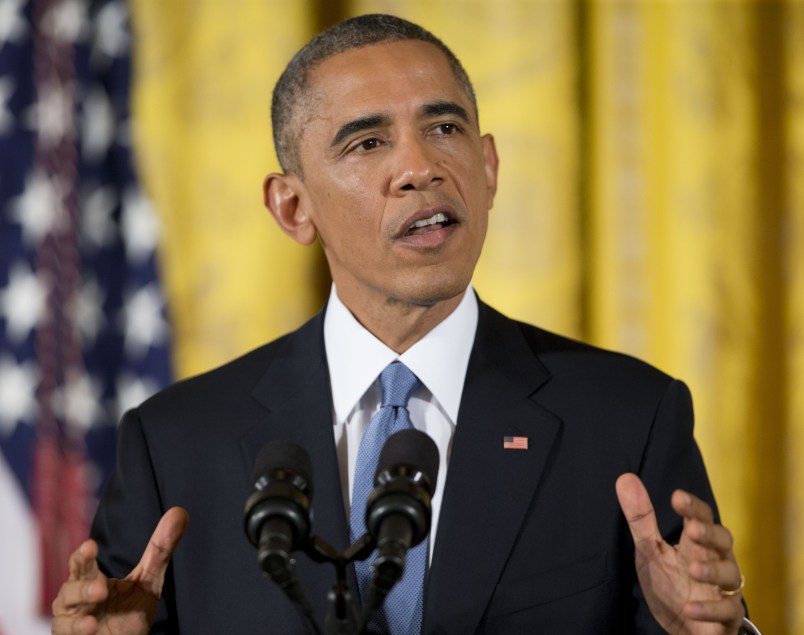WASHINGTON (AP) — Internet providers shouldn’t be allowed cut deals with online services like Netflix or YouTube to move their content faster, and should be regulated more like phone companies, President Barack Obama said Monday in an announcement that was swiftly rejected by industry.
The Federal Communications Commission is nearing a decision on how far to go to protect Internet consumers from backroom deals between broadband providers like Verizon and AT&T and content companies like Netflix. Obama’s statement puts significant political pressure on FCC commissioners and aligns the White House with Internetactivists who warn against the creation of so-called Internet “fast lanes.”
“For almost a century, our law has recognized that companies who connect you to the world have special obligations not to exploit the monopoly they enjoy over access in and out of your home or business,” Obama said in his statement. “That is why a phone call from a customer of one phone company can reliably reach a customer of a different one, and why you will not be penalized solely for calling someone who is using another provider. It is common sense that the same philosophy should guide any service that is based on the transmission of information — whether a phone call, or a packet of data.”
Industry quickly pushed back. CTIA-The Wireless Association called Obama’s proposal a “gross overreaction” that would ignore other viewpoints.
“CTIA and its members are committed to delivering an open mobile Internet, but applying last century’s public utility regulation to the dynamic mobile broadband ecosystem puts at risk the investment and innovation which characterizes America’s world-leading $196 billion wireless industry,” said the group’s president and CEO, Meredith Attwell Baker.
Last January, a federal court overturned key portions of an open Internet regulation put in place by the FCC in 2010. The court said the FCC had “failed to cite any statutory authority” to keep broadband providers from blocking or discriminating against content.
That ruling sent the FCC back to the drawing board. Until the FCC can agree on new regulations that satisfy the court’s requirements, Internet service providers could block or discriminate against content moving across their networks with impunity.
Internet activists say the FCC should reclassify the Internet as a public utility under Title II of the 1934 Communications Act to ensure it has enough power to regulate the Internet effectively. That’s exactly what industry doesn’t want to happen. Industry officials say they are committed to an open Internet in general but want flexibility to think up new ways to package and sell Internet services.
Copyright 2014 The Associated Press. All rights reserved. This material may not be published, broadcast, rewritten or redistributed.







“applying last century’s public utility regulation to the dynamic mobile broadband ecosystem puts at risk the investment and innovation which characterizes America’s world-leading $196 billion wireless industry”
Nope. Let’s try that again:
“applying last century’s public utility regulation to the dynamic mobile broadband ecosystem puts at risk the industry’s intent to allow itself to be used as a hypodermic needle mainlining advertising and political propaganda directly into your face in exchange for enormous profit”
FIFY
Giant industry, including the political industry’s party machines and their dark money empires, are essentially attempting to buy the internet in order to kill any competition they might experience. THAT is what’s going on here. It goes against the entire originating concept of the internet as a free, open and fair marketplace of ideas by directly tying the value, availability and prominence of ideas to the amount of money backing them. If you can’t imagine a world in which giant corporations and political dark money groups actually pay providers to disallowing their competitors any bandwidth, then you’re not paying attention.
Waitaminute!!! AT&T is regulated? From what???